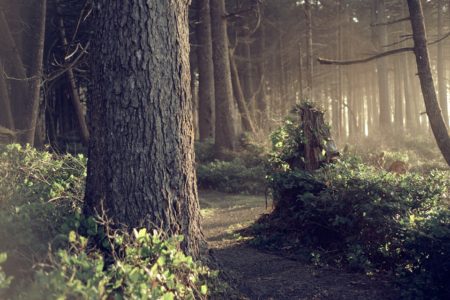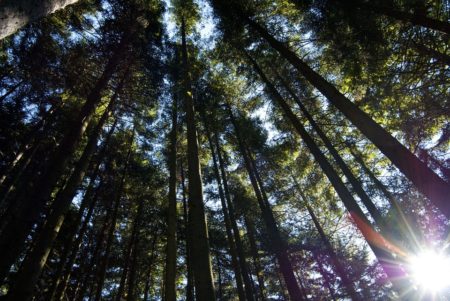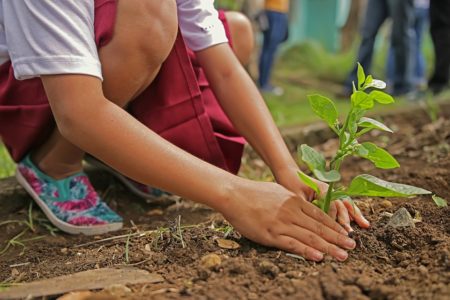David Wagoner begins his poem Lost with an invitation;
“Stand still. The trees ahead and bushes beside you
Are not lost”
He ends his poem with a second invitation to be still for
“The forest knows
Where you are, you must let it find you.”
As we celebrate Forest Sunday, perhaps it is time to admit that we as a human species have been lost for a long time. We have been forced to be still by COVID-19, providing us with an opportunity to let nature find us and teach us what we need to know. Albert Einstein suggested the same thing when he said “Look deep into nature, and then you will understand everything better”. Bernard of Clairvaux once said that we “will find something far greater in the woods than in books”. May we let the forest find us and teach us.
Forests teach us that we are not separate from nature. COVID-19 has clearly shown us that we cannot escape the effect of the traumas we inflict upon our forests . David Quammen in his book Spillover, reminds us that when we cut down forests, we shake viruses loose from their natural habitat and “when this happens, they need a new host. Often we are it.”
When we destroy our forests we destroy our own wellbeing. Thomas Berry, cultural historian once said that “We cannot have well people on a sick planet”. Our healing and the healing of forests happen together or not at all.
Forests teach us about interconnectedness. It was once believed that forests were composed of individual trees competing for resources such as water, sunlight and nutrients. Now we know that the trees live in co-operative, interdependent relationships, connected by underground fungal networks that are maintained by communication and a collective intelligence. The medieval mystic Hildegard of Bingen sensed this interrelatedness of all created things as she communed with nature in the primeval forests that surrounded the monasteries in which she lived. In the forests she experienced the greening power of nature, which she called the veriditas of God.
Angeles Arrien in her work as a cultural anthropologist found that cross culturally, indigenous peoples of the world recognized that there are four places in nature where you can find deep peace and remember who you really are. One is in the desert; one is in the mountain, one near the ocean and one is in the deep forest. Indigenous people who lived in the virgin wildwoods of the past recognised the forests as sacred sanctuaries. Trees to them were sentient beings. They viewed nature as the sacred source of everything that is needed to sustain ourselves and the planet. When we walk into a forest, trees can help us remember our connection with the natural world.
The book of Revelation tells us “And the Leaves of the Tree are for the Healing of the nation”. Forests are a source of healing. They are full of beautiful patterns everywhere one looks; the arrangements of, the bracts of a pine cone, the unfurling of a fern. These natural patterns are called fractals, patterns that are self-similar across different scales. These patterns have scientifically been proven to relax us but they do more than that. They open us to wonder, awe and amazement. As Aristotle said ‘in all things of nature, there is something of the marvellous.’ This is why we feel better in the forest and why the forest is a source of healing. Research into the Japanese practice of Forest Bathing or Shinrin-Yoku has shown that spending time in a forest has many health benefits such as reduction of blood pressure, immune system boosting, lifting of depression and much more.
In her book To Speak For The Trees Diana Beresford-Kroger, a world recognised botanist, medical biochemist and author suggests that “Trees offer us the solution to nearly every problem facing humanity today, from defending against drug resistance to halting global temperature rise, and they are eager to share those answers” and that “They do so even when we can’t or won’t hear them”. She reminds us that we once knew how to listen to nature and that it is imperative that we remember this skill. She advocates on behalf of a Global bioplan, suggesting that if every person on earth planted one tree per year for the next six years, we could halt climate change.
Instead of planting trees on our own, we can join one of the many organisations that are doing this. One such project for planting trees is the Laudato Tree project. This project reminds us that “A Tree is symbol which recognises the fact that we are one global family” and that “planting a tree offers Hope for the future.” If you would like to be part of this project please click here.
The forests are not just home to trees, but to myriads of other beings that live there and we need to listen to them too. As the book of Job reminds us,
“If we would learn more….seek information from the birds of the air,
The creeping things of earth will give you lessons.”
May we be humble enough to learn from all of life.
If you would like to learn more about forests and pandemics, please click here.
Carmel Bracken rsm
To see poems and reflections for Forest Sunday, please click here.
To see a ritual for Forest Sunday, please click here.
For more resources for the Season of Creation, please click here





